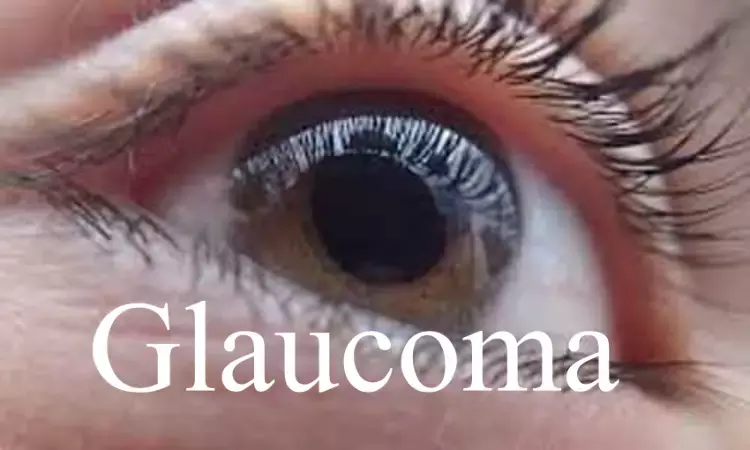- Home
- Medical news & Guidelines
- Anesthesiology
- Cardiology and CTVS
- Critical Care
- Dentistry
- Dermatology
- Diabetes and Endocrinology
- ENT
- Gastroenterology
- Medicine
- Nephrology
- Neurology
- Obstretics-Gynaecology
- Oncology
- Ophthalmology
- Orthopaedics
- Pediatrics-Neonatology
- Psychiatry
- Pulmonology
- Radiology
- Surgery
- Urology
- Laboratory Medicine
- Diet
- Nursing
- Paramedical
- Physiotherapy
- Health news
- Fact Check
- Bone Health Fact Check
- Brain Health Fact Check
- Cancer Related Fact Check
- Child Care Fact Check
- Dental and oral health fact check
- Diabetes and metabolic health fact check
- Diet and Nutrition Fact Check
- Eye and ENT Care Fact Check
- Fitness fact check
- Gut health fact check
- Heart health fact check
- Kidney health fact check
- Medical education fact check
- Men's health fact check
- Respiratory fact check
- Skin and hair care fact check
- Vaccine and Immunization fact check
- Women's health fact check
- AYUSH
- State News
- Andaman and Nicobar Islands
- Andhra Pradesh
- Arunachal Pradesh
- Assam
- Bihar
- Chandigarh
- Chattisgarh
- Dadra and Nagar Haveli
- Daman and Diu
- Delhi
- Goa
- Gujarat
- Haryana
- Himachal Pradesh
- Jammu & Kashmir
- Jharkhand
- Karnataka
- Kerala
- Ladakh
- Lakshadweep
- Madhya Pradesh
- Maharashtra
- Manipur
- Meghalaya
- Mizoram
- Nagaland
- Odisha
- Puducherry
- Punjab
- Rajasthan
- Sikkim
- Tamil Nadu
- Telangana
- Tripura
- Uttar Pradesh
- Uttrakhand
- West Bengal
- Medical Education
- Industry
Very low-fat diets associated with Increased glaucoma risk: Study

U.S.A.: There was no discernible difference in the incidence of primary open-angle glaucoma between the low-fat diet and control groups in a secondary analysis of a large, randomized low-fat dietary modification trial in middle-aged women, the results of which were published in Ophthalmology, the journal of the American Academy of Ophthalmology.
In comparison to controls, subjects in the dietary modification trial who consumed the least fat were at a considerably increased risk of developing glaucoma in the future.
Researchers noted that it had no impact and may even raise primary open-angle glaucoma (POAG) risk in people who already consume little fat.
Data from Medicare claims were linked to women who took part in the WHI DM Trial by the researchers. 13,877 women were randomly assigned to their regular diet without change, while 9,340 women received the diet modification (containing of 20% of daily energy from fat, five servings of fruit and vegetables, and six servings of grains). The two groups' initial traits were balanced. The investigation by the researchers included follow-up at the last date of filing a claim, the termination of continuous Medicare coverage, or the date of death, whichever happened first.
Conclusive points:
- With a mean follow-up of 11.6 ± 7.4 years and a mean DM duration of 5.2 ±3.2 years, POAG incidence was 11.1 per 1000 woman-years.
- There was no overall advantage of DM in lowering incidence POAG (HR = 1.04, 95% CI, 0.96-1.12).
- Participants' race and age had no impact on this relationship (P interaction 0.24 and 0.44, respectively).
- Additional analysis of baseline nutrient and food intake stratified by quartile groups revealed a greater likelihood of developing OAG in participants with DM in the lowest quartile group for percentage of calories (kcal) from total fat (33.8 or lower) (HR = 1.22, 95% CI, 1.05-1.41 and interaction p value 0.007).
Another interesting finding was that those who acquired POAG "had statistically relevant greater fruit intake, vitamin C levels, and beta-carotene levels at baseline compared with persons who did not."
Considering that the changes were less than 5%, these observations regarding the baseline intakes are probably not clinically significant.
The authors wrote in their report that "meticulous planning of future lifestyle and diet adjustment is essential given that a good balance of fat consumption may play a vital role."
"A higher degree of change in several macronutrients and micronutrients as well as other behaviors that influence POAG risk factors may be necessary to produce a major public health impact on POAG incidence," they concluded.
REFERENCE
Mehta R, Ray RM, Tussing-Humphreys LM, et al. Effect of low-fat dietary modification on incident open-angle glaucoma. Ophthalmology. November 18, 2022.
Dr Kamal Kant Kohli-MBBS, DTCD- a chest specialist with more than 30 years of practice and a flair for writing clinical articles, Dr Kamal Kant Kohli joined Medical Dialogues as a Chief Editor of Medical News. Besides writing articles, as an editor, he proofreads and verifies all the medical content published on Medical Dialogues including those coming from journals, studies,medical conferences,guidelines etc. Email: drkohli@medicaldialogues.in. Contact no. 011-43720751


